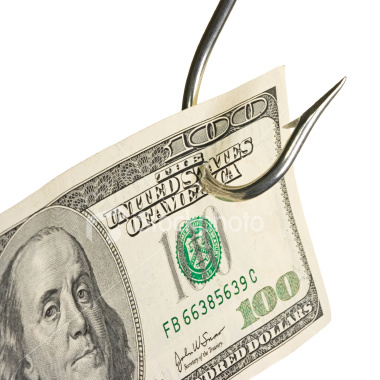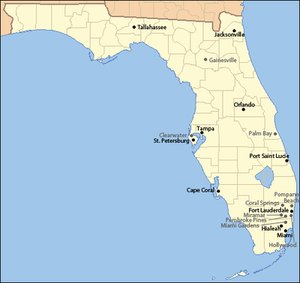 The head of family exception to wage garnishment also applies in an application for Chapter 13 Bankruptcy. Under the statutory exemption, an individual is considered to be the head of the family when (s)he “provid[es] more than one-half of the support for a child or other dependent.” Fla. Stat. Ann. § 222.11(1)(c). This statute allows for the head of family whose disposable earnings do no exceed the statutory amount to exempt all of his or her earnings from garnishment or attachment. Additionally, the disposable earnings of a head of family exceeding that amount may not be attached or garnished unless the individual agrees otherwise in writing, and then the amount available for garnishment is limited by 15 U.S.C. § 1673.
The head of family exception to wage garnishment also applies in an application for Chapter 13 Bankruptcy. Under the statutory exemption, an individual is considered to be the head of the family when (s)he “provid[es] more than one-half of the support for a child or other dependent.” Fla. Stat. Ann. § 222.11(1)(c). This statute allows for the head of family whose disposable earnings do no exceed the statutory amount to exempt all of his or her earnings from garnishment or attachment. Additionally, the disposable earnings of a head of family exceeding that amount may not be attached or garnished unless the individual agrees otherwise in writing, and then the amount available for garnishment is limited by 15 U.S.C. § 1673.
However, if the individual filing is only claiming a spouse as a dependent, the dependent spouse’s income must be insufficient to support him or herself without the income of the spouse claiming them. The purpose of the head of family exemption is to preserve the home and shelter for the family, so as to prevent the family from becoming a public charge.
The head of family exemption is intended to protect the family unit; therefore, when an individual filing for bankruptcy and claims the head of a family exemption, the dependent she is supporting must be receive income insufficient to independently support himself without the claimant’s income. If the claimant’s dependent is able to independently support himself, the claimant will not qualify under this exemption.
Articles Posted in Exempt Assets
Florida Trustee Can “Undo” Payments Made Before Bankruptcy
 Jacksonville, Florida Trustees look for payments made by debtors to creditors within ninety days of the debtor’s bankruptcy filing. The trustee can recover these funds under the theory of “Preferential Payment”. A “Preferential Payment” is any payment made by a debtor to a creditor within ninety days of filing bankruptcy. The theory behind allowing return of those funds is this: the debtor paid one creditor and not the others, the debtor preferred that creditor over the others and that is unfair, so the court will require the money to be returned so it can be distributed evenly among the existing creditors.
Jacksonville, Florida Trustees look for payments made by debtors to creditors within ninety days of the debtor’s bankruptcy filing. The trustee can recover these funds under the theory of “Preferential Payment”. A “Preferential Payment” is any payment made by a debtor to a creditor within ninety days of filing bankruptcy. The theory behind allowing return of those funds is this: the debtor paid one creditor and not the others, the debtor preferred that creditor over the others and that is unfair, so the court will require the money to be returned so it can be distributed evenly among the existing creditors.
This ninety day period is extended to two years if the creditor is considered an “insider” a.k.a. friends or relatives. So, if you paid your father back $2,000 on a debt last year and you file bankruptcy today, he may have to pay the $2,000 back to the trustee. This two year period can be extended should there be a case of actual fraudulent intent on behalf of the debtor.
There is a disagreement among the courts as to whether or not a debtor can use their available exemptions on money they used to pay creditors before a bankruptcy. Exemptions refers to property limits established by the legislature that say what the debtor can keep in a bankruptcy as it is exempt from collection. In the example of the father above, there are some jurisdictions where the debtor could use their available remaining exemptions to protect the father from having the pay back the funds on the premise that if the funds were in the control of the debtor, they could be protected. In other jurisdictions, those funds would not be protected because by paying them to the father, the debtor did not have the proper mental state of desiring to keep the funds; the very root of the cause for keeping exempt property is that the debtor seeks to keep the property.
Florida Chapter 7 Trustee’s Aggressive Collection Practices
 “If you cannot reason with a man, reason with his wallet.”
“If you cannot reason with a man, reason with his wallet.”
11 USC 326(a) determines a Chapter 7 and 11 Trustee’s compensation to be twenty-five percent of the first $5,000, ten percent from $5,000 to $50,000, five percent between $50,000 and a $1,000,000 and three percent of any monies disbursed or turned over in a bankruptcy case. For this reason, trustees are zealous in collecting all property of the debtor’s estate as is their role as representatives of the estate.
When a case is filed, a debtor must list all of the property they claim is exempt. The trustee then has thirty days to object to the debtor’s claim of exemptions, otherwise the trustee’s right is waived and the exemptions stand. If the trustee files the objection to the claim of exemptions, the objection must be justified by some kind of measurable facts. Typically, the trustee states that they disagree with the value assigned to the debtor’s property. For instance, if the debtor lists his car’s value at $1,000, which he’s allowed to keep but the trustee feels it’s worth an amount closer to $2,000. This would be a valid ground for the trustee’s objection. The debtor would then have to either amend their list of exempt property or attend a hearing in front of the judge and argue the evidence with the trustee.
Personal Property in a Jacksonville Bankruptcy
 When you file for bankruptcy in Jacksonville, Florida, a certain amount of your personal property is exempt from collection by creditors. Generally, you are allowed to keep $1,000 in personal property, $1,000 in vehicle equity and then either a qualified homestead or $4,000 dollars in additional personal property.
When you file for bankruptcy in Jacksonville, Florida, a certain amount of your personal property is exempt from collection by creditors. Generally, you are allowed to keep $1,000 in personal property, $1,000 in vehicle equity and then either a qualified homestead or $4,000 dollars in additional personal property.
To be a qualified homestead the property must be under 1/2 acre if within a municipality or up to 160 acres if in an unincorporated area. Abutting lots can qualify as long as the land maximums aren’t exceeded.
The value you assign to your property should be the approximate auction value of the property. That is to say, how much do you think you could get for that property at a bankruptcy auction? My bedroom set may have cost $1,200 ten years ago, but it is certainly not worth that today, especially at an auction. Evaluating your property is difficult and can sometimes require professional assistance. What is more important is that you are thorough in creating a complete list of what you own. Omitting valuable property interests by accident can look like an attempt to commit fraud. There are cases in which an appraiser will be sent to your house to evaluate your property. It is rare, but it does happen. You can, of course, pick and choose which property you keep based on it’s value. If you don’t care for an old, but valuable, wedding present you never use, you can list that property but not elect to exempt it, exempting something else instead.
The Role of Tax Refunds in Bankruptcy
 A commonly overlooked issue when it comes to bankruptcy is what happens to the debtor’s tax refund. Income tax refunds are treated like any other asset owned by the debtor except that it is still being held by the government. The Trustee has an interest in a pro-rata share of the refund based on the month you file because the refund has been earned up to that point. If you file at the end of April, the trustee could have an interest in 4/12ths of your next year’s tax return. When someone files for bankruptcy protection, they are only allowed to keep a limited amount of assets, called exempt property. These exemptions are limited and are declared at the time of filing the petition. If the trustee has any objections to these exemptions, he or she must formally announce those objections within thirty days of the filing of the bankruptcy.
A commonly overlooked issue when it comes to bankruptcy is what happens to the debtor’s tax refund. Income tax refunds are treated like any other asset owned by the debtor except that it is still being held by the government. The Trustee has an interest in a pro-rata share of the refund based on the month you file because the refund has been earned up to that point. If you file at the end of April, the trustee could have an interest in 4/12ths of your next year’s tax return. When someone files for bankruptcy protection, they are only allowed to keep a limited amount of assets, called exempt property. These exemptions are limited and are declared at the time of filing the petition. If the trustee has any objections to these exemptions, he or she must formally announce those objections within thirty days of the filing of the bankruptcy.
There are a few different strategies on how to deal with refunds. Some attorneys suggest that the debtor wait until they get their refund, spend the refund on reasonable and necessary living expenses such as gasoline, groceries, healthcare etc. and then file for bankruptcy. Others suggest that the debtor adjust their deductions (if there’s enough time to do so) so that the return will be smaller or non-existent. If possible, I prefer to use the debtor’s remaining exemption amounts to cover the trustee’s interest in the return. If the trustee would get $400 and the client is eligible to keep $400 due to their exemptions, I can use the exemption to let the client keep the money.
Although it’s not often an attractive option, the debtor can also simply give up the whole tax return if they feel their exemptions are better used elsewhere.
Common Bankruptcy Myths
As is most legal processes, bankruptcy can be a difficult thing to maneuver. There is a lot of misinformation out there, you need to be careful to get your information from a trusted source. Here are some myths regarding bankruptcy:
Myth 1: If I file for bankruptcy, everyone will know.
Like most legal proceedings, most bankruptcy documents are public record. Since I work at a law firm in the bankruptcy department, I search these records all the time. I even have a special username and password that allows me access online. However, how many times do you think your friends, family, or co-workers search through federal court records? The truth is that while your bankruptcy documents will be public information, it is unlikely that those you know would search to find them.
Disclose Everything in Bankruptcy
 When filing for bankruptcy, it is very important to be very honest and disclose everything. If you do not, you risk having your bankruptcy denied, discharge revoked or even prison time in the worst case scenario. When you sign your bankruptcy documents, you are doing so swearing that they are true under penalty of perjury. If the trustee finds out that something you have in your schedules is incomplete or untrue, this will raise a red flag and the trustee will scrutinize your bankruptcy schedules even more.
When filing for bankruptcy, it is very important to be very honest and disclose everything. If you do not, you risk having your bankruptcy denied, discharge revoked or even prison time in the worst case scenario. When you sign your bankruptcy documents, you are doing so swearing that they are true under penalty of perjury. If the trustee finds out that something you have in your schedules is incomplete or untrue, this will raise a red flag and the trustee will scrutinize your bankruptcy schedules even more.
A common way that people fail to disclose everything in bankruptcy is trying to hide assets. Debtors might leave off a gold watch or a private bank account. This is a big mistake. When filing for bankruptcy, you must list all of your assets. Even if you think an asset is inconsequential or minute, you should list it. It is better to have overkill than to raise a red flag.
Another thing debtors sometimes fail to list is creditors that happen to be friends or relatives. Or maybe the debtor does not want a specific creditor to know that they have filed for bankruptcy, so they do not want to list that creditor. You should not do this. You need to list all creditors to whom you currently owe any kind of debt on your bankruptcy papers. The trustee wants to make sure that all of your creditors get their fair share of your estate. No matter your intentions, make sure to list every creditor. If you do not and the trustee finds out, this will raise a red flag.
Florida’s Liberal Homestead Exemption more Liberal that Expected
 For Jacksonville Bankruptcies, individuals filing bankruptcy are permitted to keep certain amounts of property pursuant to the “Florida Exemptions“. One of these pieces of property is their Homestead.
For Jacksonville Bankruptcies, individuals filing bankruptcy are permitted to keep certain amounts of property pursuant to the “Florida Exemptions“. One of these pieces of property is their Homestead.
Article X § 4 of the Florida Constitution prevents a home of up to 1/2 acre within a municipality or 160 acres outside a municipality from being forced to sale by anyone except those holding liens for taxes, mortgages, mechanics and the like. This protection is one of the most liberal in the United States Bankruptcy Courts and has lead to the relocation of celebrities such as Oj Simpson who homesteaded property to avoid the loss of otherwise obtainable assets. Due to the quick relocation of people like Simpson, Florida now requires a person to own the property at least 1215 days (about 3.3 years) to exempt the entire value of equity in the home.
A new case, In re Gentry rules that even when a debtor initially states that they intend to abandon their homestead at the date of filing, they can later change their mind by filing an amendment and keep the home. Originally it was thought that the debtor’s intention on the date of filing is what controlled this issue, but the Tampa court stated that Florida Homestead protection is so widespread and liberal that the debtor can change their mind mid-bankruptcy. The question that remains unanswered is just how far into a bankruptcy a debtor would be to be “too late”.
Preferential Payments: Paying Relatives Back Before Filing
 One of the most unfortunate situations I see in bankruptcy cases occurs when a debtor has borrowed money from friends or relatives. In the old days, people headed toward bankruptcy would pay their creditors here and there what they could when they could. Often this would lead to one creditor being paid more than the others. Creditors were right in thinking that this was unfair and so the Legislature created 11 U.S.C. 547 (b)(4)(A) which states that any payment to a creditor made within 90 days of filing can be “avoided” (reversed) if that payment is greater than what the creditor would get from the bankruptcy estate. Further, if the creditor being paid is an “insider”, the 90 days is inflated to a full year.
One of the most unfortunate situations I see in bankruptcy cases occurs when a debtor has borrowed money from friends or relatives. In the old days, people headed toward bankruptcy would pay their creditors here and there what they could when they could. Often this would lead to one creditor being paid more than the others. Creditors were right in thinking that this was unfair and so the Legislature created 11 U.S.C. 547 (b)(4)(A) which states that any payment to a creditor made within 90 days of filing can be “avoided” (reversed) if that payment is greater than what the creditor would get from the bankruptcy estate. Further, if the creditor being paid is an “insider”, the 90 days is inflated to a full year.
What is an insider? 11 U.S.C. 101(31) defines insiders as relatives, business partners, etc. So, if you owe your parents $3,000 and you’re about to file a bankruptcy, know that payments to them within a year of the time of filing can be reversed. This can cause huge family upsets and in the wrong circumstances could lead to a bankruptcy for the parents.
If you want to pay money or transfer property to a friend or relative but you also think you may need bankruptcy protection soon, please contact a Jacksonville Bankruptcy Attorney or call us at (904) 685-1200 for a free consultation.
Bad Advice: Bankruptcy Attorney Suspended and Client’s Discharge Risked
George Sadorus could have been more careful when he hired an attorney over the internet to file his bankruptcy case. However he really should have been suspicious when his attorney told him to lie to the Trustee about why he could not attend his 341 Meeting of Creditors.
Sadorus was advised by a paralegal that $8,000 he had in a bank account would be exempt in his bankruptcy. His attorney later filed his case not disclosing the account holding the $8,000 because the paralegal hadn’t informed the attorney of the account. Once the attorney realized his mistake, he advised the client to not attend the mandatory 341 hearing and to lie about his reasons for not attending. The theory was that if the client’s case was dismissed, he could spend the money on reasonable and necessary living expenses and then refile.
The attorney then refiled the case without discussing whether any funds were remaining in the client’s account. $5,000 remained in the account when case #2 was filed. This time the client attended the 341 hearing, disclosed to the trustee what had gone on and fired his attorney. The trustee, surprised by the revelation sued the debtor for the contents of that account as well as the lawyer for sanctions and discouragement (refund) of his fee. The attorney was suspended from practicing law in that state upon the condition that he take educational courses in ethics and general practice and was forced to return to the debtor his retainer fee.
 Jacksonville Bankruptcy Lawyer Blog
Jacksonville Bankruptcy Lawyer Blog


